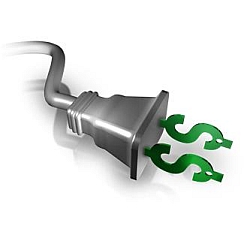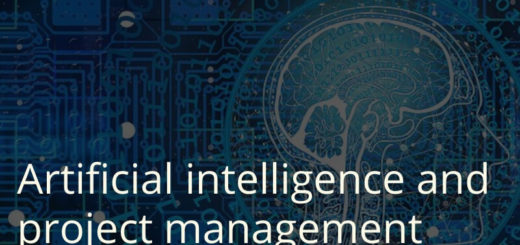How to Manage a Project Effectively
 Any individual or organization involved in managing various projects has ever asked this important question: “How to manage a project effectively?” Obviously, effective project management (PM) is not a myth or something unreachable. Managing a project effectively is really an attainable practice but the greatest challenge here is to know how exactly to do that. Today I’m going to help you answer this question. If you still cannot reach effectiveness in making your PM effort, or you know how to be effective but perhaps you wish to test your knowledge, then Welcome! I would like to tell you how I personally understand effective project management and what exact steps can be taken to do a conventional project in an effective manner. Your comments are appreciated.
Any individual or organization involved in managing various projects has ever asked this important question: “How to manage a project effectively?” Obviously, effective project management (PM) is not a myth or something unreachable. Managing a project effectively is really an attainable practice but the greatest challenge here is to know how exactly to do that. Today I’m going to help you answer this question. If you still cannot reach effectiveness in making your PM effort, or you know how to be effective but perhaps you wish to test your knowledge, then Welcome! I would like to tell you how I personally understand effective project management and what exact steps can be taken to do a conventional project in an effective manner. Your comments are appreciated.
Effective PM through Lessons Learned
I’ve been practising project management for about 5 years. I saw many wins and losses; I succeeded in most of my projects; fortunately I failed not too many times but anyway failures brought some loss. Why do I tell you all this? Because I believe that any project failure can be prevented by effective project management. If I could manage my projects effectively all the time, I would never make a mistake and never fail my endeavors.
We cannot turn the time back. But what we can really do is to learn what was wrong in our previous projects, create corrective actions, and then try to be effective next time when planning for new projects. I follow this idea in my PM practice. I understand managing a project effectively as being able to take one step back to review the things happened and understand what could be done better. That’s the ultimate recipe of effective project management.
Before you start doing a new project, I suggest you review and understand the lessons learned from your previous projects. And I promise, doing so you’ll definitely find something interesting and worthwhile that will help you make your present project(s) more effective.
Here’re some tips on PM lessons learned for you:
- Retrieve the reports of your previous project(s) and see what issues those projects encountered
- Understand how the issues were solved, whether the solutions were successful
- Figure out if the current project may face the same issues
- If so, understand how to develop and implement the solutions in your current project
Managing Effectively Means…
How do you understand the term “effectiveness”? How do you consider the phrase “to be effective”? And finally what do you know about how to manage a project effectively?
Many project managers failed with their projects because they had a wrong or incomplete understanding of effectiveness. For me, effectiveness or being effective means an ability to do the right things. Effectiveness is when you can achieve your objective to the degree you planned for.
For example:
- An effective purchase is when you buy all the items you planned in advance
- An effective meeting is a meeting that’s been conducted completely by the agenda
- An effective software solution is the one that lets users achieve their goals and objectives
In other words, effectiveness means having the desired result or effect produced. This statement provides the core understanding of an effective project. Your project will be effective if it produces a desired outcome.
Managing a project effectively means planning, coordinating, controlling and implementing project activities in the way that ensures successful achievement of project objectives and full resolution or elimination of the project problem. It is a complex activity that aims to produce the desired results upon successful project completion.
Top 10 Considerations
Now I want to share my most important considerations about how to manage a project effectively. My considerations are based my own practice and successes (and failures of course). Please also take a look at these tips about managing project delivery.
A project becomes effective when it’s managed under the following considerations:
- Communications process is the key tool to create and maintain your project’s integrity. As you may know, a project manager spends about 80% of the working time on the communication with stakeholders and the team. If you want your project to be successful, then be sure communication channels are established and information is smoothly exchanged between participants.
- Team management defines the success of jointed effort. As an effective project leader, you must be sure that every member of your project team is adequate and satisfactory to the assigned role and responsibilities. You must take care of such processes as recruiting, team building, team development, training, motivation, leadership, recognition.
- Feasibility and cost-effectiveness are the aspects that determine project success at the very beginning of the project. Feasibility analysis should be carried out at project definition stage to confirm the project is realistic and practical; cost-effective analysis aims to confirm the project produces a desired result with no cost overruns.
- Scoping or determining the requirements and boundaries of your project. You must conduct a preliminary analysis to find out whether the project is necessary. Remember: a project won’t be effective and won’t produce a desired outcome if there’s no good reasonable need for launching this project. Be very careful when analyzing and assessing the need for project initiation.
- Plan activities ahead in order to ensure you have enough time for any adjustment if necessary. Of course, a project plan should be clear, credible, complete and concise. There should be no “what-if scenarios” or uncertainty. You must effectively manage risks and threats in order ensure success of your endeavor.
- Provide sufficient project controls to ensure project effectiveness. Controls include project administration, budget development, cost analysis and time management.
- Manage project records to ensure that every change or modification applied to any component of your project is detected and documented. If you can’t manage record and files, you’re likely to miss something important. Be attentive!
- Evaluate every piece of data before making final decision. Don’t make slapdash decisions in your project. It’s better to take your time and think about possible consequences of one or another decision. Also have and use a contingency plan in case of emergency.
- Ensure sustainability through providing balanced attention to business, environment, social and economic concerns. Project sustainability should be one of several priorities that your project team needs to consider in determining the best possible project outcome.
- Close the project appropriately to ensure that financial and non-financial requirements are addressed by the project, all contracts are closed, documents received and submitted, project accounting is reconciled, invoices submitted and paid, funding surpluses returned, the product is handed over to the customer.














